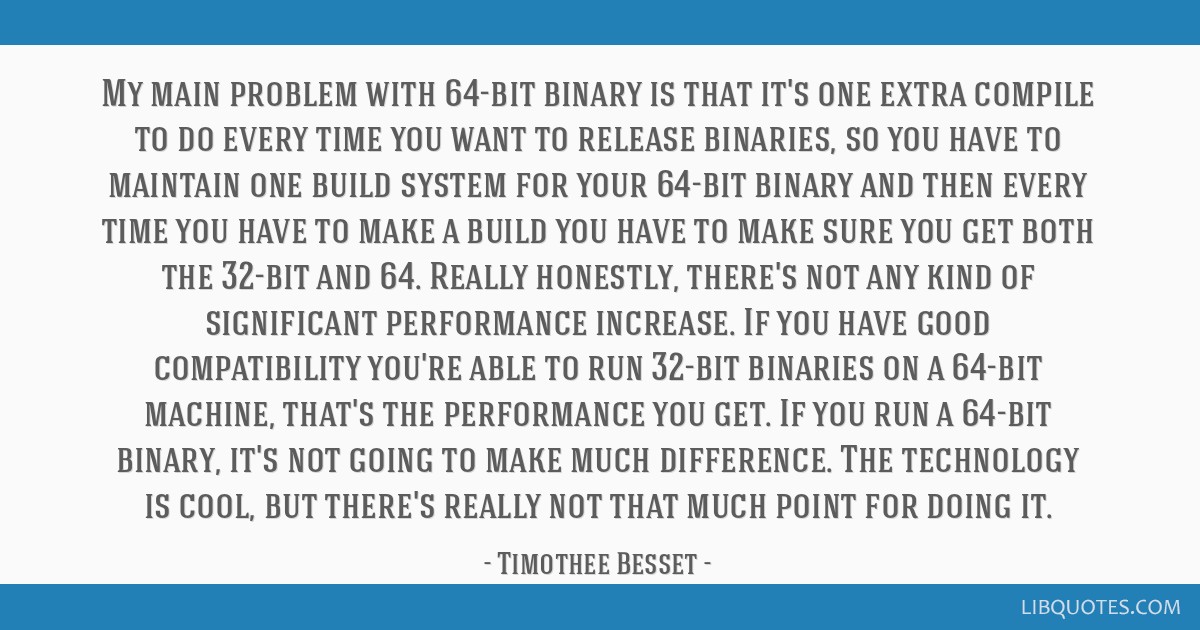My main problem with 64-bit binary is that it's one extra compile to do every time you want to release binaries, so you have to maintain one build system for your 64-bit binary and then every time you have to make a build you have to make sure you get both the 32-bit and 64. Really honestly, there's not any kind of significant performance increase. If you have good compatibility you're able to run 32-bit binaries on a 64-bit machine, that's the performance you get. If you run a 64-bit binary, it's not going to make much difference. The technology is cool, but there's really not that much point for doing it.
Quoted in Dustin Reyes, "Interview with id Software's Timothee Besset at QuakeCon 2006" LinuxGames (2006-08-07).























